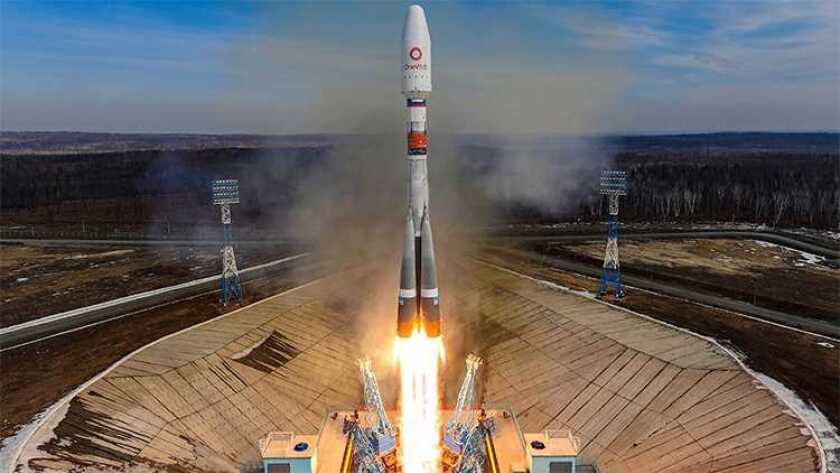Reports in the Indian media, belatedly confirmed by OneWeb itself, say that the UK-based satellite company has an agreement with NewSpace India (NSIL), inaugurated by Indian prime minister Narendra Modi this week.
However, the reports have get-out clauses. First, the letter of intent between OneWeb and NSIL is described as “non-binding”, and the Indian company’s launch vehicles are described as “potential platforms to launch OneWeb’s satellites in India from 2022”.
Arianespace, which has successfully launched all of OneWeb’s 322 satellites so far, is due to launch another 36 tomorrow, again using a Russian-built Soyuz rocket: the launch is due at 05:40 ET, 09:40 UTC, from Vostochny (pictured) in the far east of Russia.
Arianespace has a contract for all of OneWeb’s initial generation of 648 satellites, though that programme is due to be complete in mid-2022, ready for OneWeb to start global services. The company plans to introduce some services later this year, but only for territory north of 50° north, covering northern Europe, Alaska and part of Canada.
The service is expected to provide connectivity to users in remote regions, including initially northern Europe and the Arctic, as well as backhaul for mobile base stations, taking advantage of the low latency offered by the low Earth orbit (LEO) satellites.
It now looks as though OneWeb is lining up NSIL for its second generation of satellites, though that is not due to be in production until 2023 or 2024. An alternative scenario is that OneWeb continues production of its first generation satellites at the factory in Florida it jointly owns with Airbus.
Sunil Bharti Mittal, executive chairman of OneWeb and representative of the Indian group Bharti which is the biggest shareholder, said: “OneWeb will be delighted to use ISRO’s proven platforms to fulfil its vision of taking broadband connectivity across the earth, oceans and sky.”
He said this initiative will further Modi’s vision of making India a key hub in the global space ecosystem. Mittal added: “We look forward to a deeper engagement with NSIL/ISRO over the coming years.”
ISRO will use two types of launcher, said OneWeb: its Polar Satellite Launch Vehicle (PSLV) and a heavier rocket, GSLV-Mk3, initially designed for geosynchronous satellites. However, again OneWeb used the term “potential platforms”.
The Times of India separately quoted Mittal as saying: “The collaboration with ISRO is moving along and I am happy to announce that we have made arrangements to use ISRO’s workhorse PSLV and importantly the new rocket with a very large payload capacity, the GSLV-Mk3, to launch OneWeb satellites from the Indian soil.”
Mittal added, said the newspaper, that OneWeb will be the first customers to start bringing in commercial positions in the Indian space market and will pave the way for more international customers to come to India.
Mittal was speaking at the inauguration of the new Indian Space Association, which represents companies in the industry.






